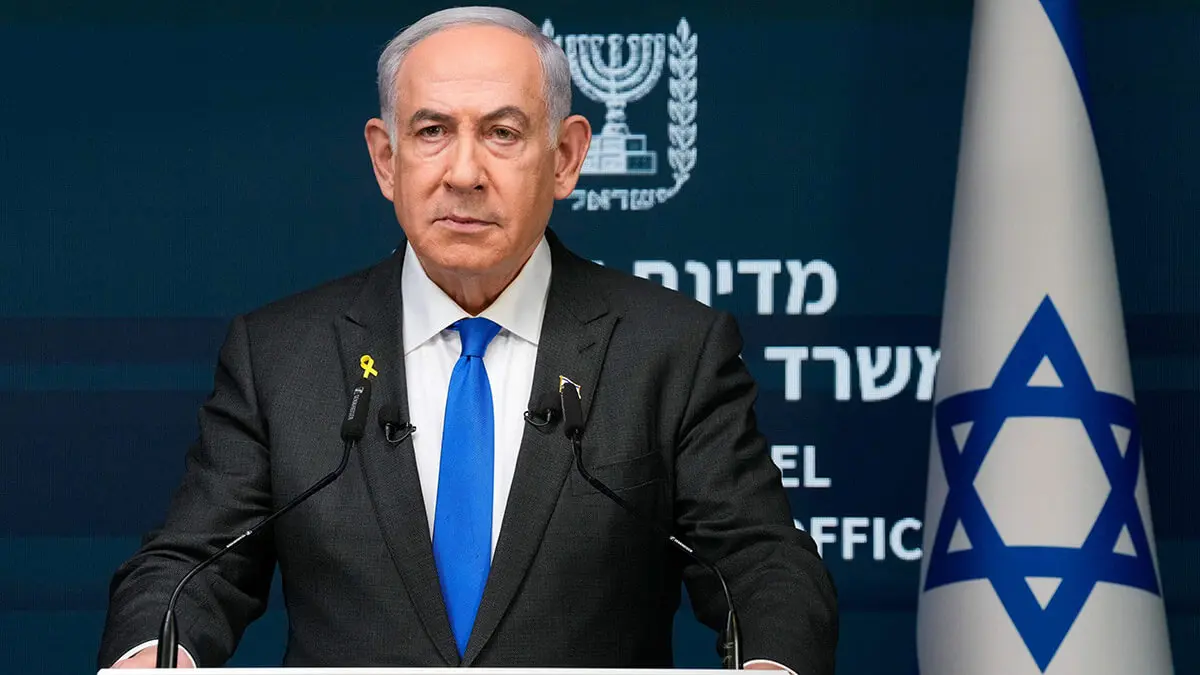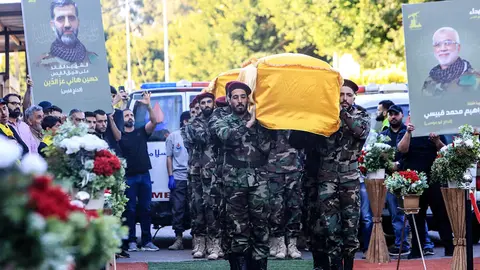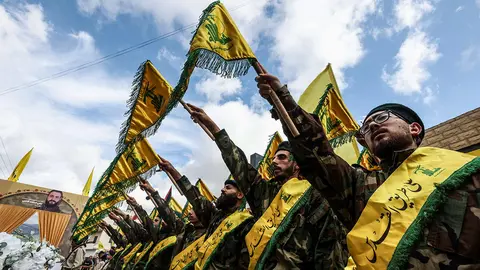Netanyahu says he ‘shares the objectives’ of the ceasefire plan presented by the US

The United States, along with its key European and Middle Eastern allies, is seeking a ceasefire between Israel and Hezbollah as tensions and fears of all-out war continue to rise.
In a joint statement, the United States, France, Australia, Canada, the European Union, Germany, Italy, Japan, Saudi Arabia, the United Arab Emirates and Qatar urge Israel and Hezbollah to agree to a 21-day ceasefire in order to conduct negotiations on a diplomatic solution to the crisis on the Israel-Lebanon border.
Ceasefire with whom?
— Eylon Levy (@EylonALevy) September 26, 2024
How did none of the leaders of 🇺🇸🇦🇺🇨🇦🇪🇺🇫🇷🇩🇪🇮🇹🇯🇵🇸🇦🇦🇪🇶🇦 think, “Huh, why doesn’t this statement say Hezbollah? Shouldn’t we mention it?” pic.twitter.com/WjdtPSqmsr
The statement, which does not directly mention Hezbollah, stresses the importance of providing the security and protection necessary for civilians to return to their homes, halting the escalation and preventing a possible Israeli ground invasion of southern Lebanon.
Throughout this year, Joe Biden's administration has sought to broker a ceasefire that would see Hezbollah withdraw to the Litani River, some 29 kilometres north of the Israeli border - as called for years ago in a UN Security Council resolution - as well as the return of thousands of people on both sides of the border to their homes.
Hezbollah started the war against Israel on 8 October, almost a year ago, in support of Hamas in the Gaza Strip. Since then, the Lebanese Shiite militia is estimated to have fired more than 8,000 shells into Israeli territory, causing the evacuation of thousands of people from the north of the country.
Recently, after including the safe return of citizens from the north to their homes as one of the objectives of the war, Israel has intensified its attacks on Hezbollah positions in various parts of Lebanon, killing more than 700 people, according to Lebanese health authorities, who do not distinguish between combatants and civilians.
This is in addition to the coordinated explosions of Hezbollah-linked electronic devices and the recent eliminations of senior members of the terrorist organisation in Beirut.
Israeli Prime Minister Benjamin Netanyahu earlier after arriving in New York City for the U.N. General Assembly, “During the Flight I gave permission to Eliminate the Head of Hezbollah’s Aerial Force, and he was Eliminated. Our Policy is clear, we continue to hit Hezbollah and we… pic.twitter.com/uJCSaRTgjN
— OSINTdefender (@sentdefender) September 26, 2024
Shortly after issuing the joint statement on the ceasefire proposal, Israeli Prime Minister Benjamin Netanyahu assured that Israel ‘will continue to attack Hizbollah with full force’. ‘We will not stop until we achieve all our goals,’ the Israeli leader said on his arrival in the US before addressing the UN General Assembly.
However, in recent hours, the Israeli Prime Minister's Office said in a statement that ‘Israel shares the goals’ of the US-led initiative, stressing in particular the return of people living on the northern border to their homes in a safe and secure manner. ‘Israel appreciates the efforts of the United States in this regard because the role of the United States is indispensable in promoting stability and security in the region,’ he added.
Israel shares the aims of the US-led initiative of enabling people along our northern border to return safely and securely to their homes. Israel appreciates the US efforts in this regard because the US role is indispensable in advancing stability and security in the region.
— Prime Minister of Israel (@IsraeliPM) September 27, 2024
Once again, Netanyahu faces pressure from many members of his executive, such as national security minister Itamar Ben Gvir, who has already threatened to withdraw from the coalition government if a ceasefire is accepted. Israel's Foreign Minister, Israel Katz, also urged that the fight against Hizbollah must continue ‘with all forces until victory’.
Meanwhile, the Israeli air force continues its offensive against the Iranian-backed Lebanese militia, targeting arms and ammunition depots in various parts of the country. Also, in the last hours, the Israeli army confirmed an attack along the Syrian border with the aim of destroying infrastructure used by Hezbollah to transfer weapons to Lebanon.
Secondary Explosions = Stored Munitions
— Israel Defense Forces (@IDF) September 25, 2024
It's basic. Secondary explosions occur because we are precisely targeting the munitions of Hezbollah that are aimed at killing our civilians. pic.twitter.com/HvgbEkps2L
On the other hand, the terrorist group has resumed its attacks on northern Israel, including the cities of Haifa and Tiberias, causing several minor injuries.
🚨 Haifa, Israel’s 3rd largest city, was under massive rocket attack this morning from Hezbollah. You see here also the Iron Dome in action, thwarting the missiles. pic.twitter.com/JR1ge3VumY
— Arsen Ostrovsky 🎗️ (@Ostrov_A) September 27, 2024
Yemen's Houthis launch missile at Tel Aviv
Amid clashes between Israel and Hezbollah, Yemen's Houthis - also backed by Tehran - launched a missile at central Israel after midnight that was intercepted by defence systems.
The Houthis, who claim to act in solidarity with Hamas in Gaza, first attacked Tel Aviv last July with a drone, killing one man and wounding several people. In response, Israel bombed Houthi military targets near the port of Hodeidah.
Los Hutíes siguen atacando a Israel, acá un misil balístico lanzado por ellos desde Yemen es interceptado en el cielo de Tel Aviv por el sistema de defensa Arrow. pic.twitter.com/0ChYSU2GfG
— Dani Lerer (@danilerer) September 26, 2024
During the beginning of the war the Houthis focused on attacking commercial ships transiting the Red Sea, as well as the Israeli city of Eilat. However, in recent months they have decided to expand their attacks on Israeli centres, as was the case in early September, when they launched a missile that was intercepted by air defences.
This new attack comes shortly after Israel eliminated Hezbollah's top air force commander, Mohammed Srur, in a targeted operation in Beirut. According to Ynet, Srur had recently returned to Lebanon from Yemen, where he had been training Houthi rebels.
Hezbollah confirmed the death of aerial forces chief Mohammed Srur overnight. https://t.co/QNW9nPZ89z
— Emanuel (Mannie) Fabian (@manniefabian) September 27, 2024
The Houthis have also received training from Iran's elite Revolutionary Guard Corps (IRGC) as well as Iraqi armed groups.










